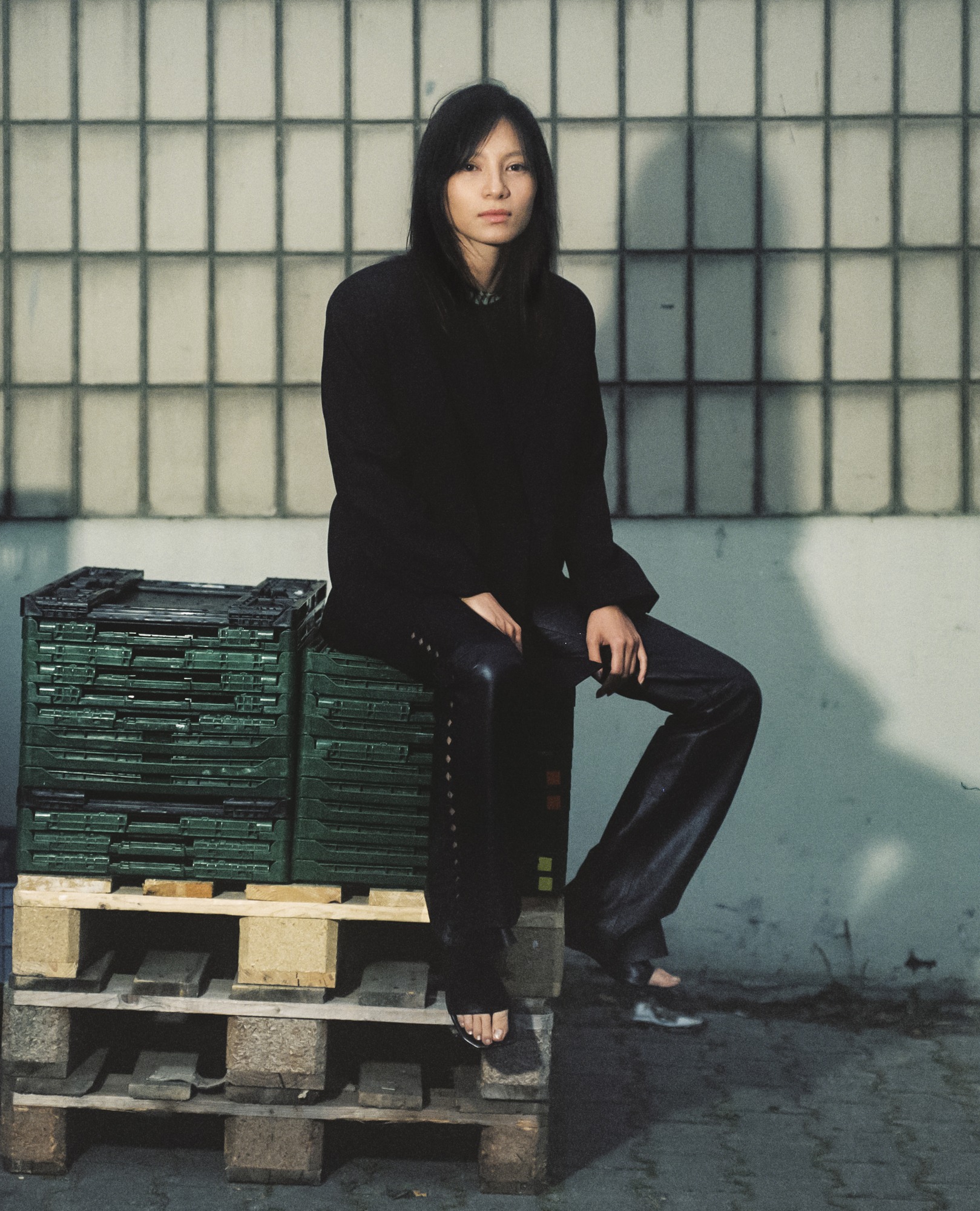Sung Tieu. No Jobs, No Country
11 Mar - 07 May 2023
Curator: Anna Lena Seiser
In video and sound works, installations, and objects, the German-Vietnamese artist Sung Tieu (*1987 in Hai Duong / Vietnam, lives in Berlin) explores connections between architecture and ideology, bureaucracy and power structures, and the effects of the Cold War. Tieu’s exhibition at n.b.k. focuses on the “Objekt Gehrenseestrasse,” one of the largest dormitory complexes in East Germany, built in the early 1980s in the Berlin district of Lichtenberg. The housing complex comprises nine identical Plattenbau structures made of prefabricated concrete slabs. From 1982 on, it was mainly used for housing contract workers, particularly from Vietnam, who lived under strict regulations and constant supervision with around 5 m2 of living space per person.
After German Reunification, the Gehrenseestrasse complex provided housing for asylum seekers and later refugees from former Yugoslavia and the Middle East, among other countries. Empty since 2003, the complex is currently scheduled for demolition in 2023, with a new residential and commercial district to be built in its place under the name Quartier Gehrenseestrasse. Tieu herself lived in one of the buildings at Gehrenseestrasse from 1994 to 1997. Many of her works deal with the role of contract workers in East Germany and the bureaucratic constraints imposed on them, both before and after German Reunification.
Through a sense of heightened formality that refers to gestures and discourses of minimalism and abstraction while subtly subverting them, Sung Tieu lays bare the ideologies cemented in architectures or imprinted in administrative documents. Her works also point to the organization of surface and volume, which, even beyond art, plays a social role as an instrument of governmentality, whose effectiveness manifests itself especially in detention spaces and state architectures. At the n.b.k. Showroom, this connection is made clear by a steel sculpture based on the floor plan of a building at the Gehrenseestrasse complex, as well as by a spatial intervention in which perforations in the wall imply the outlines of a window behind it, evoking the impression of a living room. In addition, four plaster works with geometric drawings are embedded in the wall. Taking the size of standard A4 paper, the works outline the two-dimensional space that people must fill out when applying for a residence permit in Germany.
Sung Tieu lives and works in Berlin. Her works have been presented in solo exhibitions in Germany and abroad, including at Amant, New York (2023); MIT List Visual Arts Center, Cambridge/Mass. (2023); MUDAM, Luxembourg (2022); Kunstmuseum Bonn (2021); Galerie für Zeitgenössische Kunst Leipzig (2021); Nottingham Contemporary (2020); Haus der Kunst, Munich (2020); Nha San Collective, Hanoi (2017). Tieu’s works were shown at the biennials in São Paulo and Kyiv (both 2021). Group exhibitions, amongst others, at Kunstmuseum Winterthur (2022); Stedelijk Museum, Amsterdam (2022); Museion, Bolzano (2021); Kunsthalle Basel (2021); Hamburger Bahnhof, Berlin (2020). In 2021, Tieu received the Frieze Artist Award, the ars viva Prize, and the Audience Award of the National Gallery Prize in Berlin.
In video and sound works, installations, and objects, the German-Vietnamese artist Sung Tieu (*1987 in Hai Duong / Vietnam, lives in Berlin) explores connections between architecture and ideology, bureaucracy and power structures, and the effects of the Cold War. Tieu’s exhibition at n.b.k. focuses on the “Objekt Gehrenseestrasse,” one of the largest dormitory complexes in East Germany, built in the early 1980s in the Berlin district of Lichtenberg. The housing complex comprises nine identical Plattenbau structures made of prefabricated concrete slabs. From 1982 on, it was mainly used for housing contract workers, particularly from Vietnam, who lived under strict regulations and constant supervision with around 5 m2 of living space per person.
After German Reunification, the Gehrenseestrasse complex provided housing for asylum seekers and later refugees from former Yugoslavia and the Middle East, among other countries. Empty since 2003, the complex is currently scheduled for demolition in 2023, with a new residential and commercial district to be built in its place under the name Quartier Gehrenseestrasse. Tieu herself lived in one of the buildings at Gehrenseestrasse from 1994 to 1997. Many of her works deal with the role of contract workers in East Germany and the bureaucratic constraints imposed on them, both before and after German Reunification.
Through a sense of heightened formality that refers to gestures and discourses of minimalism and abstraction while subtly subverting them, Sung Tieu lays bare the ideologies cemented in architectures or imprinted in administrative documents. Her works also point to the organization of surface and volume, which, even beyond art, plays a social role as an instrument of governmentality, whose effectiveness manifests itself especially in detention spaces and state architectures. At the n.b.k. Showroom, this connection is made clear by a steel sculpture based on the floor plan of a building at the Gehrenseestrasse complex, as well as by a spatial intervention in which perforations in the wall imply the outlines of a window behind it, evoking the impression of a living room. In addition, four plaster works with geometric drawings are embedded in the wall. Taking the size of standard A4 paper, the works outline the two-dimensional space that people must fill out when applying for a residence permit in Germany.
Sung Tieu lives and works in Berlin. Her works have been presented in solo exhibitions in Germany and abroad, including at Amant, New York (2023); MIT List Visual Arts Center, Cambridge/Mass. (2023); MUDAM, Luxembourg (2022); Kunstmuseum Bonn (2021); Galerie für Zeitgenössische Kunst Leipzig (2021); Nottingham Contemporary (2020); Haus der Kunst, Munich (2020); Nha San Collective, Hanoi (2017). Tieu’s works were shown at the biennials in São Paulo and Kyiv (both 2021). Group exhibitions, amongst others, at Kunstmuseum Winterthur (2022); Stedelijk Museum, Amsterdam (2022); Museion, Bolzano (2021); Kunsthalle Basel (2021); Hamburger Bahnhof, Berlin (2020). In 2021, Tieu received the Frieze Artist Award, the ars viva Prize, and the Audience Award of the National Gallery Prize in Berlin.

